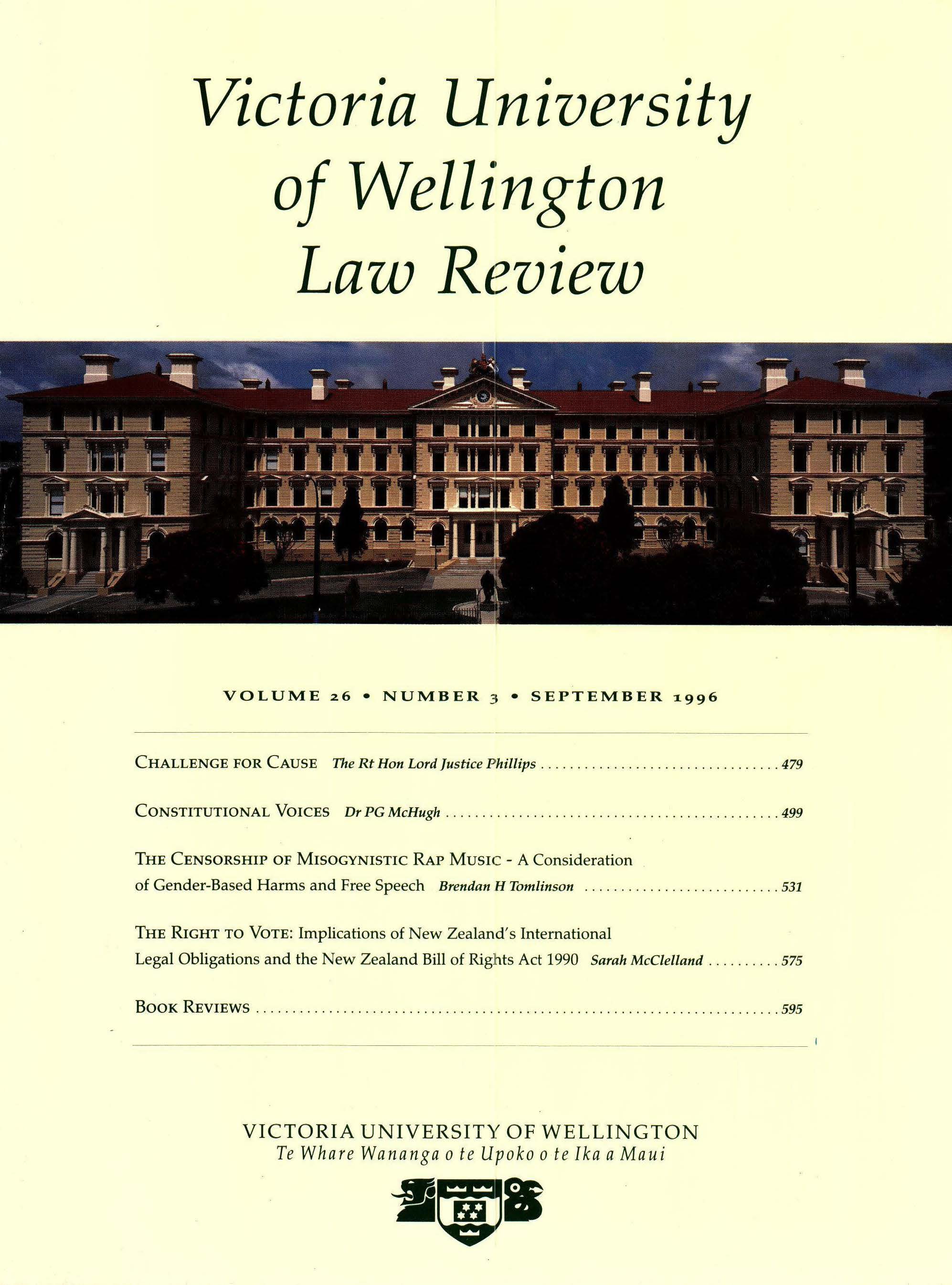Constitutional Voices
DOI:
https://doi.org/10.26686/vuwlr.v26i3.6157Abstract
This article discusses the epistemic and historiographical properties of Anglo-settler constitutionalism in contemporary New Zealand. It draws in particular on the writing of James Tully and Judith Binney to illuminate how our constitutional framework and national mindset need not be monoform and narrowly focused, as the Anglo-settler state has tended to suggest. Instead, the Crown has been required to take account of other forces, especially Maori demands. This is leading to an emergent "constitutionalism", founded on a willingness to listen to the range of "constitutional voices". The author concludes that if the emergent constitutionalism in New Zealand/Aotearoa – its law and its history – becomes one of dialogue and compromise founded upon a willingness to listen to these constitutional voices and predicated also upon a realisation of the sheer difficulty of living together on these small islands, then the politics of mana can be no bad thing.
Downloads
Downloads
Published
How to Cite
Issue
Section
License
Authors retain copyright in their work published in the Victoria University of Wellington Law Review.


